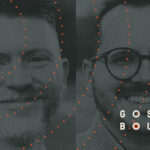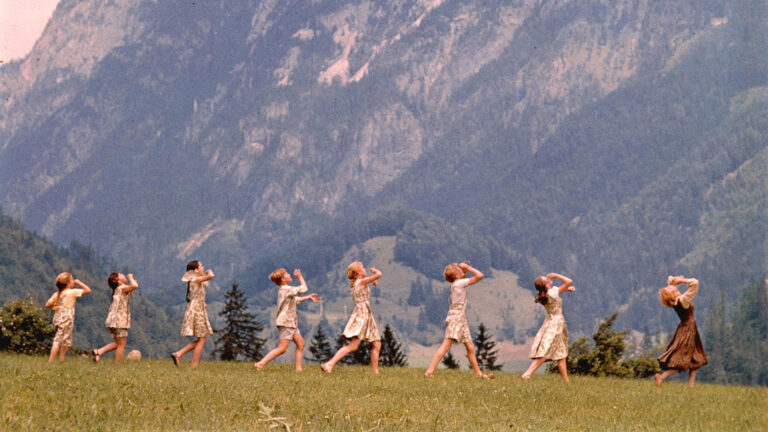On My Shelf helps you get to know various writers through a behind-the-scenes glimpse into their lives as readers.
I asked Andy Crouch—senior strategist for communication at the John Templeton Foundation and author of The Tech-Wise Family (2017) [interview | review], Strong and Weak (2016) [review], Playing God (2013) [review], and Culture Making (2008) [review]—about what’s on his nightstand, his favorite fiction books, books that have shaped his thinking on cultural engagement, and more.
What’s on your nightstand right now?
- The Theater of God’s Glory: Calvin, Creation, and the Liturgical Arts by W. David O. Taylor
- Christian Ethics in a Technological Age by Brian Brock
- Just Mercy by Bryan Stevenson
- The Penultimate Curiosity: How Science Swims in the Slipstream of Ultimate Questions by Andrew Briggs and Roger Wagner
- The Woman Who Smashed Codes: A True Story of Love, Spies, and the Unlikely Heroine Who Outwitted America’s Enemies by Jason Fagone
- Barefoot Leadership by Alvin Ung
- A Long Obedience in the Same Direction by Eugene Peterson
- Leadership Without Easy Answers by Ronald Heifetz
- The Return of the Prodigal Son by Henri Nouwen
- The Mind of the Maker by Dorothy Sayers
- The Sacred Canopy by Peter Berger
- Walking with the Poor: Principles and Practices of Transformational Development by Bryant Meyers
- A Soldier of the Great War by Mark Helprin
- The Man Who Was Thursday by G. K. Chesterton
- The Odyssey by Homer
What’s your favorite book that no one has heard of?
When I was younger, “Apart from me you can do nothing” (John 15:5) seemed like a grand and totally inaccessible spiritual truth. These days it seems like a completely concrete and economical description of reality.
Also in the On My Shelf series: Walter Strickland • Hannah Anderson • S. D. Smith • Curtis Woods • Mindy Belz • Steve Timmis • David Mathis • Michael Lindsay • Nathan Finn • Jennifer Marshall • Todd Billings • Greg Thornbury • Greg Forster • Jen Pollock Michel • Sam Storms • Barton Swaim • John Stonestreet • George Marsden • Andrew Wilson • Sally Lloyd-Jones • Darryl Williamson • D. A. Horton • Carl Ellis • Owen Strachan • Thomas Kidd • David Murray • Jarvis Williams • Gracy Olmstead • Matthew Hall • Drew Dyck • Louis Markos • Ray Ortlund • Brett McCracken • Mez McConnell • Erik Raymond • Sandra McCracken • Tim Challies • Sammy Rhodes • Karen Ellis • Alastair Roberts • Scott Sauls • Karen Swallow Prior • Jackie Hill Perry • Bruce Ashford • Jonathan Leeman • Megan Hill • Marvin Olasky • David Wells • John Frame • Rod Dreher • James K. A. Smith • Randy Alcorn • Tom Schreiner • Trillia Newbell • Jen Wilkin • Joe Carter • Timothy George • Tim Keller • Bryan Chapell • Lauren Chandler • Mike Cosper • Russell Moore • Jared Wilson • Kathy Keller • J. D. Greear • Kevin DeYoung • Kathleen Nielson • Thabiti Anyabwile • Elyse Fitzpatrick • Collin Hansen • Fred Sanders • Rosaria Butterfield • Nancy Guthrie • Matt Chandler
Browse dozens of book recommendations from The Gospel Coalition’s leaders and sign up your church at Hubworthy.
Download your free Christmas playlist by TGC editor Brett McCracken!
 It’s that time of year, when the world falls in love—with Christmas music! If you’re ready to immerse yourself in the sounds of the season, we’ve got a brand-new playlist for you. The Gospel Coalition’s free 2025 Christmas playlist is full of joyful, festive, and nostalgic songs to help you celebrate the sweetness of this sacred season.
It’s that time of year, when the world falls in love—with Christmas music! If you’re ready to immerse yourself in the sounds of the season, we’ve got a brand-new playlist for you. The Gospel Coalition’s free 2025 Christmas playlist is full of joyful, festive, and nostalgic songs to help you celebrate the sweetness of this sacred season.
The 75 songs on this playlist are all recordings from at least 20 years ago—most of them from further back in the 1950s and 1960s. Each song has been thoughtfully selected by TGC Arts & Culture Editor Brett McCracken to cultivate a fun but meaningful mix of vintage Christmas vibes.
To start listening to this free resource, simply click below to receive your link to the private playlist on Spotify or Apple Music.


































